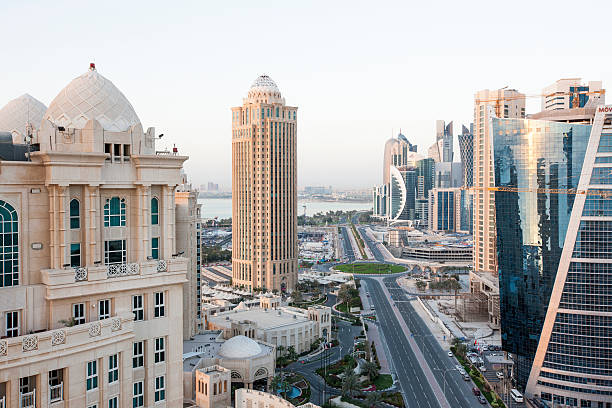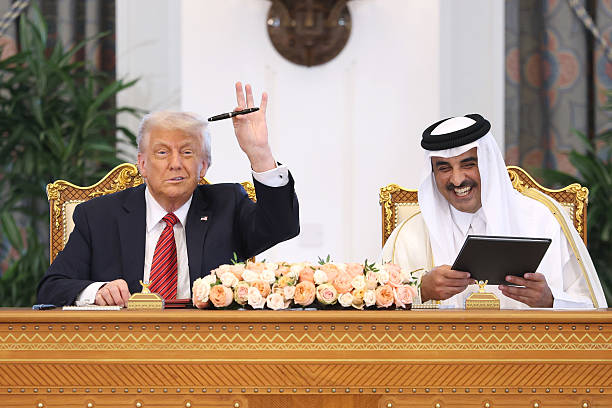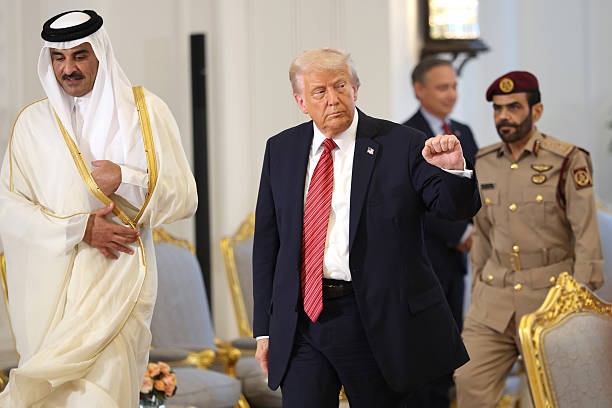Qatar
Qatar is a small yet remarkably influential country located in the Middle East on the northeastern coast of the Arabian Peninsula. Despite its modest size and population, Qatar has risen to international prominence due to its vast natural gas reserves, rapid economic development, modern infrastructure, and active role in global diplomacy and sports.
Geography and Population
Summers are scorching and winters are moderate in its desert climate. Doha, the country’s capital and largest city, is the hub of its politics, economy, and culture. According to current estimates, Qatar is home to more than 2.8 million people, the bulk of them are expatriates from nations including Egypt, Pakistan, India, Nepal, and the Philippines.
History and Governance
When Qatar became an independent nation on September 3, 1971, it was a British protectorate. The current Emir, Sheikh Tamim bin Hamad Al Thani, took power in 2013 after his father abdicated.

Though the country has no full democracy, it maintains a consultative council, and in recent years, it has taken steps toward political reforms, including the holding of its first-ever legislative elections in 2021.
Economy
Per capita, Qatar is among the richest nations in the world. Its oil and natural gas deposits, especially the North resource, the biggest natural gas resource in the world, are the main sources of its income. In addition, Qatar is a major exporter of LNG, which makes it an essential worldwide energy source.
In an effort to reduce its dependence on oil and gas, Qatar has launched Qatar National Vision 2030, a plan aimed at diversifying the economy, improving education and healthcare, and promoting sustainability.
Culture and Society
Qatari culture is deeply rooted in Islamic traditions and Arab heritage.
Qatari society places a high value on family, hospitality, and respect for traditions. However, the country is also home to a diverse mix of cultures due to the large expatriate population.
Qatar is known for its preservation of cultural heritage, as seen in museums such as the Museum of Islamic Art and the National Museum of Qatar. At the same time, it has embraced modernity, with impressive architectural developments, luxury shopping malls, and international cuisine.
Sports and Global Influence
In recent years, Qatar has made significant investments in sports and international diplomacy. It owns major sports media networks like beIN Sports and has hosted numerous international sporting events. Most notably, Qatar hosted the FIFA World Cup 2022, becoming the first Arab and Muslim country to do so. This event showcased the country’s ability to organize global events and highlighted its commitment to tourism and international outreach.
Qatar also plays a vital role in regional diplomacy. It has acted as a mediator in various conflicts in the Middle East and hosts the headquarters of Al Jazeera, a major global news network that brings Middle Eastern perspectives to international audiences.

Challenges and Criticism
Despite its achievements, Qatar has faced criticism regarding human rights issues, particularly concerning migrant workers’ rights and freedoms of expression. The government has initiated several labor reforms under international pressure, especially in preparation for the FIFA World Cup, but concerns persist among rights organizations.
Additionally, Qatar’s relations with some of its Gulf neighbors have been strained, most notably during the Gulf Crisis of 2017, when Saudi Arabia, the UAE, Bahrain, and Egypt imposed a blockade on Qatar, accusing it of supporting terrorism. The crisis ended in early 2021, but it highlighted the region’s geopolitical complexities.
Conclusion
Qatar is a nation of contrasts: rich in tradition but embracing modernity; geographically small but geopolitically significant. Its rapid development, ambitious vision for the future, and increasing role on the global stage make it a unique and fascinating country. As it continues to evolve, Qatar is likely to remain a key player in the economic, cultural, and political landscape of both the Middle East and the wider world.

